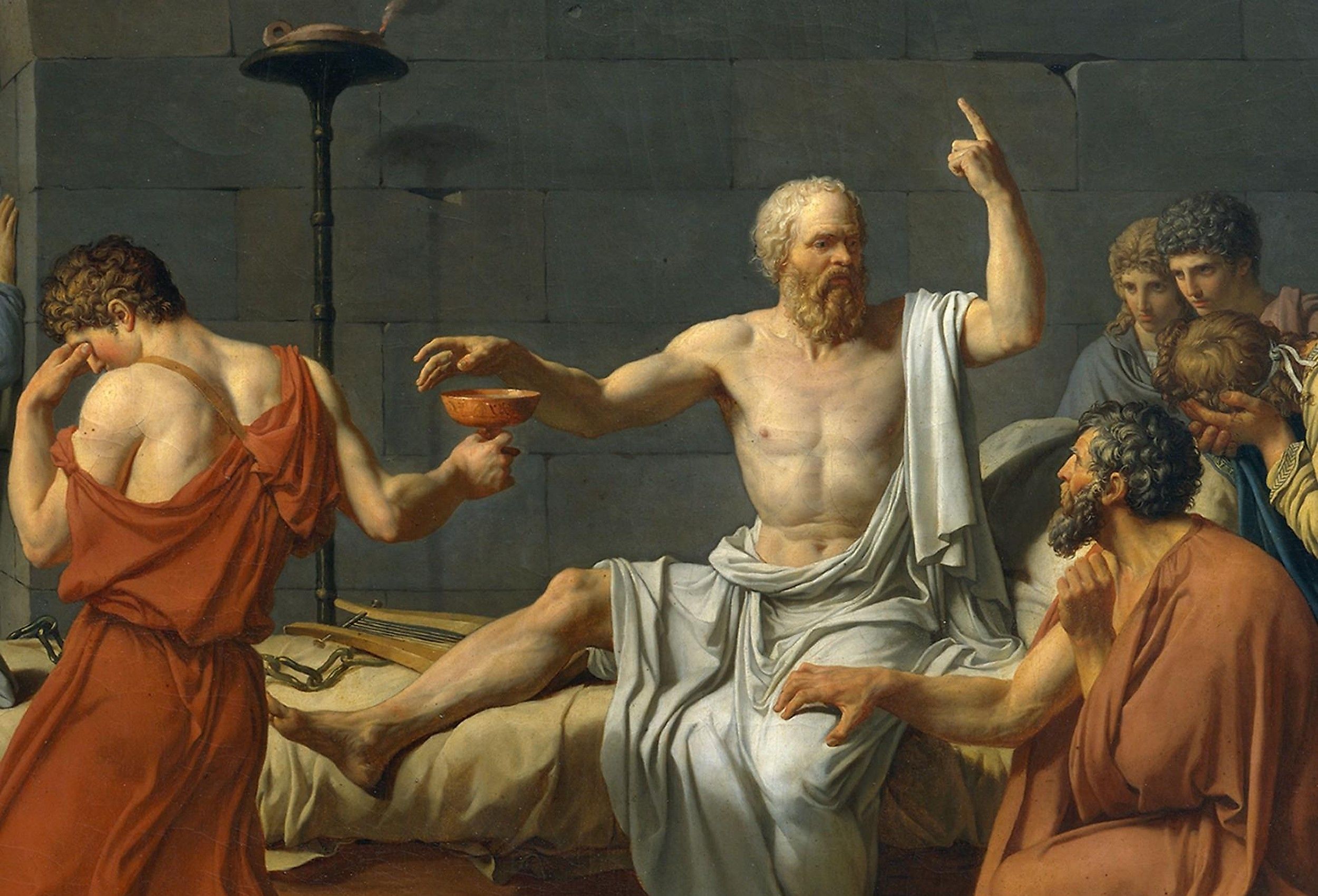
12 Philosophical Concepts You Should Know
Many ponder the meaning of life and what it takes to be a good person. These are queries that have inspired the study of philosophy, a discipline that has been integral to human history. From ancient Greek words meaning "love of wisdom," Plato and Aristotle to Kant and Descartes, philosophy seeks to explore fundamental issues about existence, knowledge, values, and language.
While the practice of philosophy has taken different forms over time, with societies producing their own brand of knowledge, it can be overwhelming for those new to the study. Here are twelve concepts everyone should know starting out in their philosophy journey.
1. The Categorical Imperative
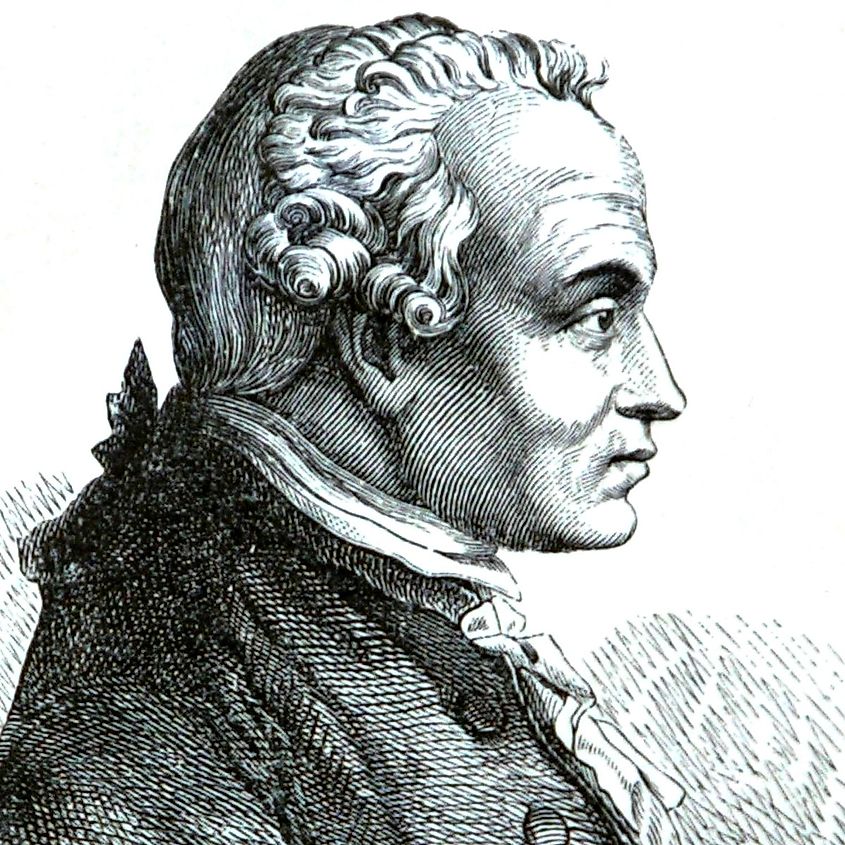
Most people have contemplated ethics at some point in their lives. One of the most famous topics in ethics is Immanuel Kant's Categorical Imperative. The idea was first introduced in Kant's book Groundwork of the Metaphysics of Morals in 1785. The categorical imperative says there are certain moral rules people should follow regardless of the circumstances.
According to Kant, morality is summed up by imperatives, which are propositions that say an action is necessary. Moral obligations arise out of these imperatives. There are two distinct types of imperatives, hypothetical and categorical. Hypothetical imperatives are imperatives with a specific end in mind. For example, eating because you are hungry would be a hypothetical imperative. Categorical imperatives, by contrast, are an end in themselves. For example, never lying would be a categorical imperative. Categorical imperatives evaluate motivations for actions and are a formula for telling moral rules. This idea of the categorical imperative was the basis for Kant's moral system of deontology.
2. Utilitarianism

Where The Categorical Imperative stresses general principles, utilitarianism stresses one idea, that the best action is the one that maximizes happiness for all involved. Some of the most famous utilitarians include philosophers such as Jeremy Bentham and John Stuart Mill. Utilitarianism is a branch of consequentialism, a branch of ethics that judges our actions based on their consequences. This view of ethics is opposite to egoism, which says people should act in self-interest, even when it hurts others. Utilitarianism is also different from ethical theories, that view the morality of an action based on someone's motivation. The most significant part of the theory is the notion that people should strive to do the action that will produce good for the most amount of people.
3. Epicureanism
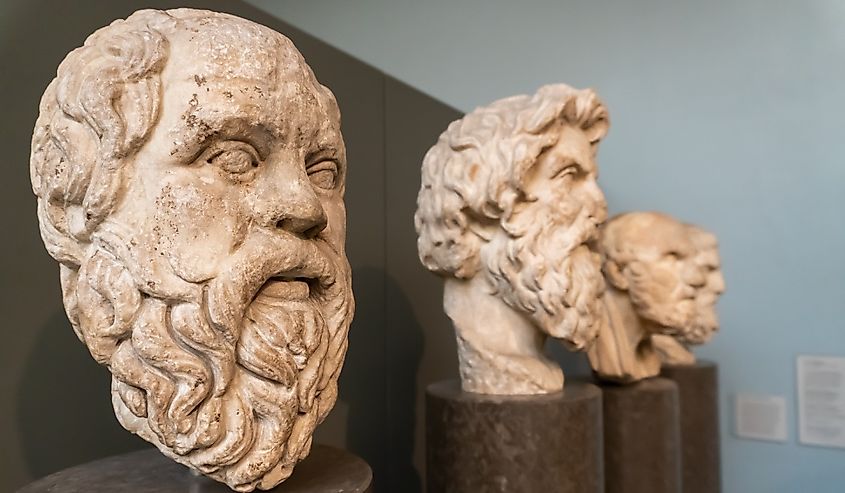
Epicureanism is another philosophy focused on ethics, based on the teachings of the philosopher Epicurus. At the heart of Epicureanism is the idea that people should live a simple life. Epicurus cited the greatest good and highest level of happiness as achieving tranquility, freedom from fear, and the absence of bodily pain. To achieve this happiness, Epicurus suggests people look to understand the world around them and limit their own desires. He also claimed the pursuit of pleasure is the main motivation for most people.
However, for Epicurus, the pursuit of pleasure looked different than how many people might think. Epicurus found pleasure from friendship, knowledge, living a virtuous life, living a temperate life, community, and abstaining from bodily desires. While epicureanism is a form of hedonism, since the philosophy focuses on the pursuit of pleasure, the central tenets of the philosophy revolve around living a life of moderation.
4. Stoicism
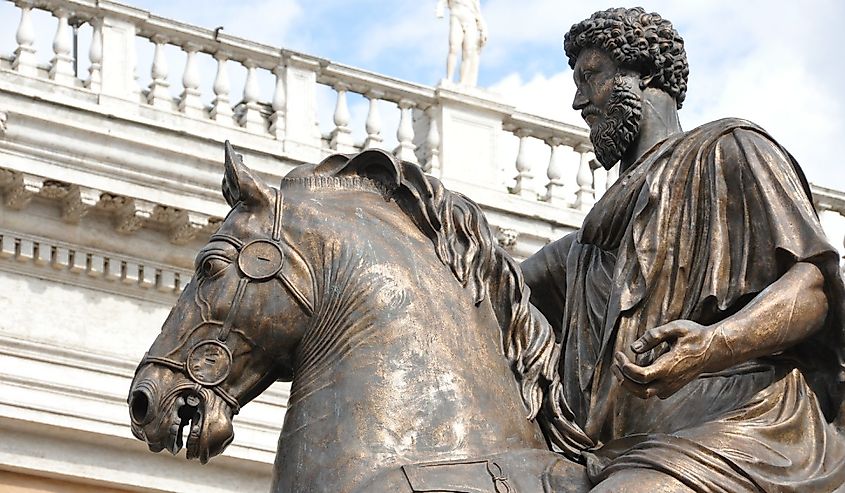
Founded by the ancient Greek philosopher Zeno, stoicism is a philosophy that focuses on virtue ethics. Besides Aristotle's virtue ethics, the stoics are one of the major approaches to virtue ethics. Virtue ethics treats morals virtue as central to morality. According to the Stoics, practicing virtue and living in accordance with nature is key to achieving happiness. A central idea in stoicism is accepting that some things are beyond our control. Once people do this, they can focus on things they can control. The stoics are also well known for a concept known as "apatheia," which is the ability to remain calm in the face of adversity.
5. Nihilism
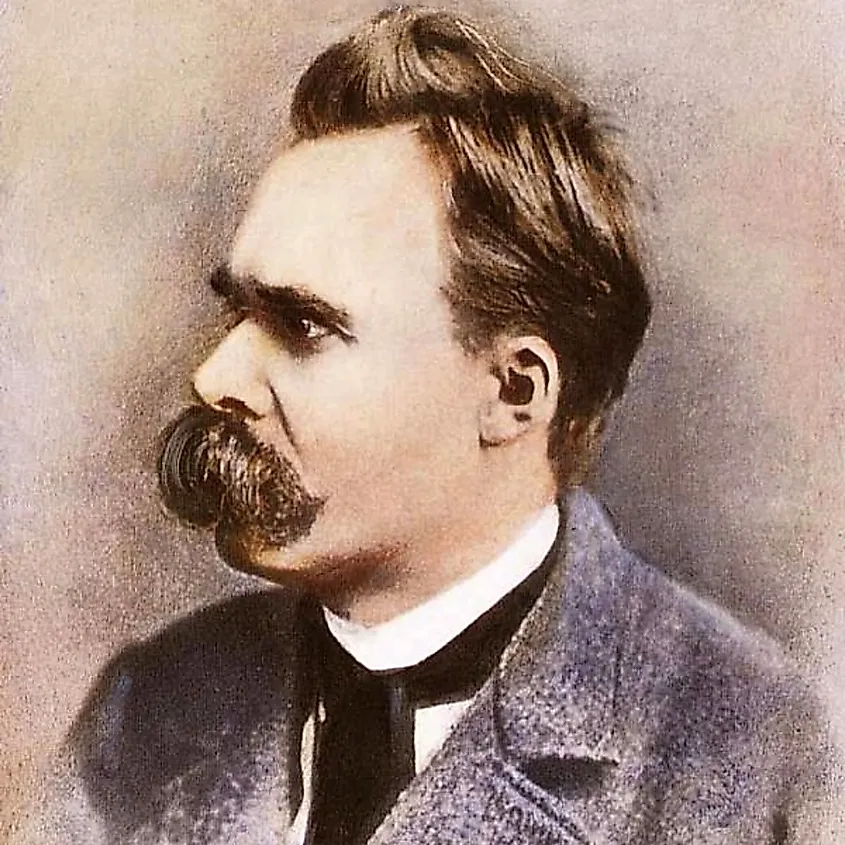
Nihilism was born out of skepticism in 19th-century Russia. The philosophy rejects generally accepted ideas about morality, knowledge, and meaning. At the core of nihilism is the belief that nobody knows anything or can know anything. Many nihilists agree that values are baseless, there are no oral truths, nothing can be truly known, and that life is ultimately meaningless. Nihilism is often depicted as a depressing, pessimistic view of human existence.
The philosophy was famously used by Friedrich Nietzsche to describe the disintegration of traditional morality in Western society. Nietzsche argued that nihilism would eventually destroy all moral, religious, and metaphysical convictions and create a crisis. Throughout the 20th century, this idea preoccupied artists, social critics, and philosophers.
6. Existentialism

Influenced by nihilism, existentialism is a philosophy that emphasizes individual freedom and choice and the inherent meaninglessness of life. The philosophy was born out of the horrors of the 20th century. World War II, the Nazi death camps, and the atomic bombings of Hiroshima and Nagasaki, all created the circumstances for "the existential moment."
While many of the most popular existentialists were French, including Albert Camus, Jean-Paul Sartre, and Simone de Beauvoir, the movement started with earlier philosophers, including Søren Kierkegaard and Friedrich Nietzsche. Existentialists all differ in their philosophies, but a common idea amongst them is that people are responsible for creating meaning in their lives. Many believe people can create meaning through choices and actions.
7. Introspection

While you can learn about your mind through psychology books, according to many philosophers, the best way to learn about your mind is through introspection. Introspection is the process of looking at your own mind to discover how it works. It is closely connected to epistemology, the field of philosophy looking at knowledge and the distinction between a justified belief and an opinion. Early philosophers noted the connection between introspection and personal belief.
They claimed observing a person's beliefs comes from introspection, and each person has special access to their own mental state through introspection. Since introspection is more immediate than direct knowledge, introspection is often considered a foundation for other forms of knowledge. In modern-day psychology, the accuracy of introspection is a subject of contentious debate.
8. Memento Mori

"Memento Mori" is Latin for "remember you will die" and is a reflection on the temporary nature of existence. It serves as a reminder to take action and not take your time on earth for granted. The phrase dates back to ancient Roman tradition and military triumph. After a general claimed a victory in ancient Rome, a companion or slave would follow behind him for a ceremonial procession to remind the general of his mortality. The companion or slave would whisper into the general's ear. Some of the phrases the companion whispered include, “Look behind. Remember, you are mortal. Remember, you must die!” These words served to remind the general that victory was temporary, similar to life. While memento mori has roots in Rome, the idea was also adopted by other cultures and religions, including Egypt, Judaism, Christianity, and Buddhism. The stoics are also well known for their practice of memento mori.
9. Confucianism

Founded by the Chinese philosopher Confucius, Confucianism was a way of life followed by Chinese people from the 6th to the 5th century BCE. The ideas have influenced other countries, including Korea, Japan, and Vietnam. Confucianism is a way of life, social ethic, and political ideology. The philosophy stresses living in harmony with others and upholding virtues such as kindness, compassion, and respect. Similar to virtue ethics, Confucianism holds moral virtue as an important aspect of morality, and Confucians believe people should live according to principles of righteousness and justice. Beyond philosophy, sometimes Confucianism is also viewed as a religion. Today, although the philosophy has transformed, Confucianism is still followed by much of China.
10. Humanism
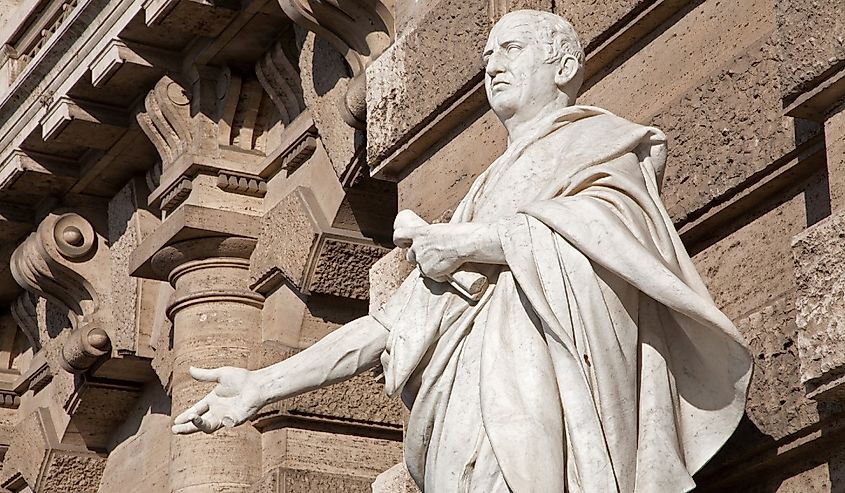
Humanism is a philosophy that centers on individual and social human potential and focuses on the agency of humans. The word humanism comes from the Latin word humanitas, a word first used by Roman thinkers such as Cicero to describe values related to liberal education. Since then, the word has changed meaning, and there is no universally agreed-upon definition of Humanism. The philosophical idea of humanism is a belief that people can act rationally and make decisions based on rationality and empathy rather than an external power such as supernatural belief. Similar to existentialism, humanism also focuses on the agency people have over shaping their own lives and the world around them.
11. I Know That I Know Nothing
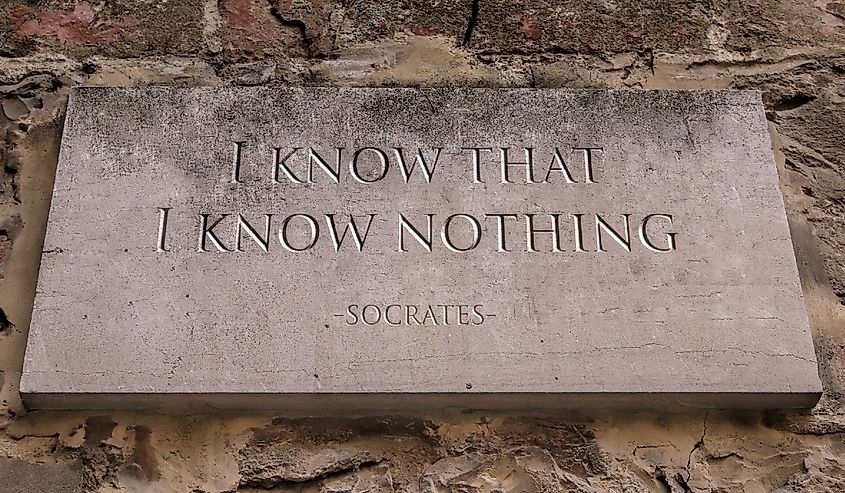
Famously attributed to Socrates, "I know that I know nothing" is a quote from Plato's Apology. While it is sometimes interpreted as Socrates humbly bragging about his own wisdom, this is a misinterpretation. What Socrates really means is that nothing is ever known for certain. Beliefs and opinions all have a level of uncertainty. This idea has been a hot topic of debate for centuries. It is a significant statement in the field of epistemology, the field of philosophy concerned with the theory of knowledge. The uncertainty about human knowledge and whether the foundation of human knowledge rests on anything more than tradition and custom was a precursor to the famous work of Descartes and the idea of Cogito Ergo Sum.
12. Cogito Ergo Sum
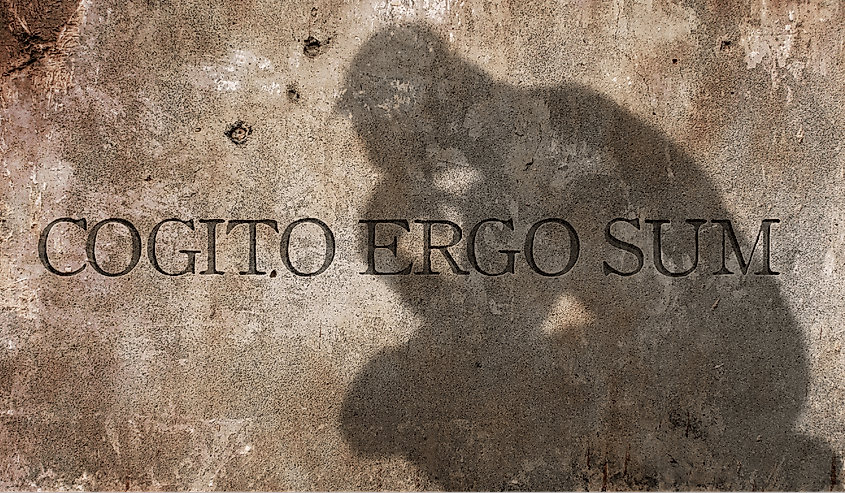
Cogito Ergo Sum translates to "I think therefore I am" and is 17th-century philosopher Rene Descartes's most famous philosophical line. This is the first principle of Descartes's philosophy and translates to modern English as "I think therefore I exist." While this might seem like basic knowledge, this idea was part of Descartes's thought experiment to determine what was real. To determine what was real and what was not, Descartes doubted everything in existence. Descartes doubted reason and the reliability of his senses and realized whatever he doubted; he could not doubt his own existence.
When you ask a question about whether something exists, you can never be wrong about your own existence because in order to be wrong, there has to be a "you" to be wrong. This was the foundation of Descartes's philosophy, and he believed this idea to withstand any skepticism thrown at it.
These are only twelve philosophical concepts; there are many other ideas and thinkers in philosophy. The beauty of these ideas is they are potential answers to questions most people ask themselves throughout their life. To discover what or who you want to learn more about, think about the types of questions you ask yourself. Whether you enjoy pondering morality or existence, there is a philosophy to pique everyone's interest.











